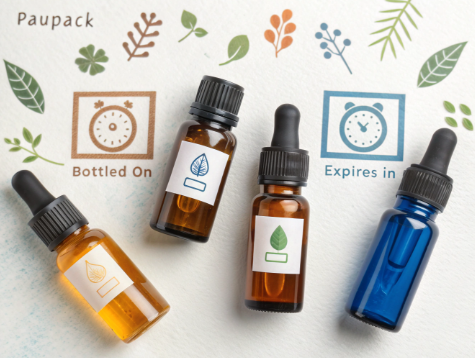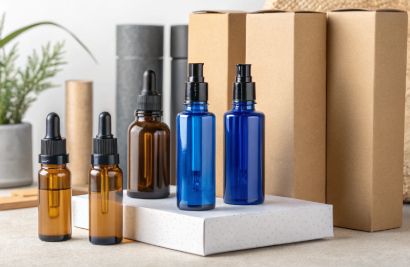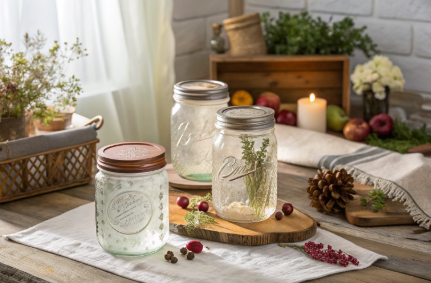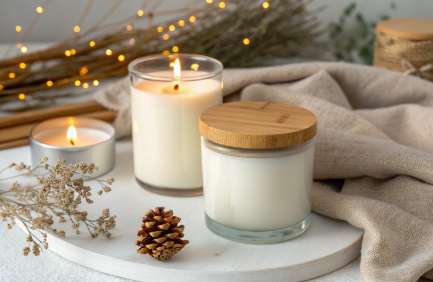Essential oil products are delicate and high-value—but many brands still struggle with leaky bottles, generic designs, or packaging that doesn’t protect the aroma.
Custom essential oil packaging is a tailored solution that ensures your oils are safe, beautiful, and aligned with your brand. It combines protective materials, functional design, and branded aesthetics.
If you’re building a brand or scaling your product line, read on to understand why custom packaging isn’t a luxury—it’s a necessity.
What is custom packaging boxes?
Your oils are unique—why settle for generic boxes?
Custom packaging boxes are tailored containers designed to fit your essential oil bottles in size, style, and brand identity. They enhance protection, visual appeal, and customer experience.
Dive Deeper: Custom Boxes = First Impressions
In the essential oil industry, packaging plays two major roles: protection and presentation. At PauPack, we help brands create custom boxes that do both—protect the integrity of their oils and make a statement on the shelf or in shipping.
Functional Design for Glass Protection
Essential oil bottles—especially those made of glass—need shock-absorbent, tight-fit packaging. A poorly designed box means higher breakage risk during transport, or bottles clanking together in a subscription kit.
We offer:
-
Die-cut inserts for each bottle size
-
Layered corrugated board for shipping durability
-
Custom-fit dividers for gift sets or multi-packs
Branding: Unboxing Matters
Packaging is your silent salesman. A box with your logo, color palette, and story printed inside not only adds perceived value but builds emotional connection. We offer:
| Custom Option | Description |
|---|---|
| Logo printing | Offset, screen, or hot foil options |
| Finish choices | Matte, gloss, or soft-touch |
| Specialty cuts | Window panels, magnetic closures |
| Sustainable material | Kraft, bamboo pulp, or recycled cardboard |
From indie aromatherapy start-ups to Amazon sellers, our clients choose PauPack because we simplify the customization journey from concept to carton.
What is the best packaging for essential oils?
You’ve crafted a premium blend—don’t let it evaporate in subpar packaging.
The best packaging for essential oils includes UV-protective glass bottles (like amber), airtight caps or droppers, and secure outer boxes. It prevents leaks, oxidation, and light degradation.
Dive Deeper: Three Must-Haves for Essential Oil Packaging
1. UV Protection
Essential oils degrade quickly when exposed to light. Amber glass is the gold standard for light-sensitive contents. At PauPack, we offer:
-
Amber bottles from 5ml to 100ml
-
Cobalt blue or matte black options for premium branding
-
Frosted finishes that blend aesthetics and function
2. Cap Compatibility
Not all closures are created equal. You’ll need options for:
-
Glass droppers: for serums and controlled dosing
-
Roll-on caps: for topical blends
-
Spray pumps: for room mists or hydrosols
Each bottle and cap must be leak-tested—especially if your oils contain citrus, which can corrode plastic. We perform QC leak testing for every batch.
3. Outer Protection
An essential oil bottle doesn’t just live on a shelf—it travels. That’s why custom corrugated mailers or rigid gift boxes with molded foam are so popular among our clients.
At PauPack, we supply both the inner bottle and outer box—ensuring compatibility and speed to market.
Can you fly internationally with essential oils?
Traveling with oils? Think TSA and leakage.
Yes, you can fly with essential oils internationally—but they must be packed in bottles under 100ml and placed in a clear, quart-sized zip bag for carry-on. For checked luggage, seal bottles tightly and double-bag.
Dive Deeper: Essential Oil Travel Tips
Regulatory Limits
Most countries follow aviation safety guidelines set by TSA or IATA:
-
Carry-on rules: 100ml (3.4oz) per item, total liquids under 1 liter
-
Checked luggage: No specific volume cap, but bottles must be leakproof
Best Practices for Safe Travel
| Step | Tip |
|---|---|
| Seal It | Use shrink bands or tape to prevent cap loosening |
| Protect It | Store bottles in padded pouch or travel case |
| Label It | Clearly mark contents to avoid customs issues |
| Avoid Heat | Keep away from direct sun or heat vents in the cabin |
For brand owners shipping products internationally, compliant packaging is crucial. At PauPack, we guide our clients through international labeling, MSDS documentation, and selecting travel-safe formats.
What is FCO in essential oils?
You may see “FCO” on a supplier’s list—but what does it really mean?
FCO stands for Fractionated Coconut Oil, a common carrier oil used to dilute essential oils. It's odorless, lightweight, and doesn’t solidify at room temperature.
Dive Deeper: Why FCO is a Packaging Consideration
Role in Blending and Application
Essential oils are highly concentrated and often need to be diluted before topical use. FCO is ideal because:
-
It extends shelf life
-
It prevents skin irritation
-
It enhances absorption without staining
That’s why many roll-on blends and massage oils are pre-mixed with FCO—and that changes how you should think about packaging.
Packaging Compatibility
FCO is more stable than other carrier oils, but it can still interact with certain plastics over time. That’s why we recommend:
-
Glass bottles with droppers or rollers
-
Tested plastic pumps for lotions
-
Aluminum barriers for squeeze tubes
At PauPack, we offer compatibility testing services and help you select the right bottle + cap combination for oil-based formulas.
Conclusion
Custom essential oil packaging isn’t just a branding tool—it’s protection, compliance, and customer experience in one neat solution.








![Top 10 Borosilicate Glass Lunch Box Manufacturers in the World[2025 Updated]](https://ptwebimg.pinshop.com/i/2025/06/12/lv73ko-3.png)
![Top 10 Glass Bottle Manufacturers in Australia[2025 Updated]](https://ptwebimg.pinshop.com/i/2025/06/12/li3gd2-3.png)

![Top 10 Leading Glass Jar Manufacturers in the USA[2025 Updated]](https://ptwebimg.pinshop.com/i/2025/06/11/pglm9v-3.png)
![Top 10 Borosilicate Glass Storage Jar Manufacturers in the World[2025 Updated]](https://ptwebimg.pinshop.com/i/2025/06/10/1301y65-3.png)

